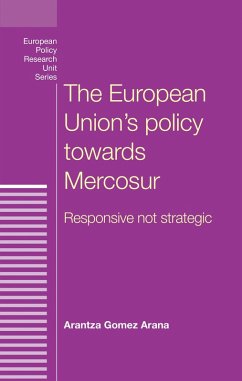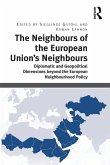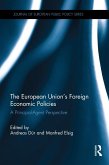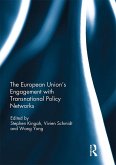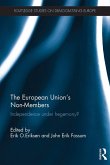This electronic version has been made available under a Creative Commons (BY-NC-ND) open access license. This book provides a distinctive and empirically rich account of the European Union's relationship with the Common Market of the South (Mercosur). It seeks to examine the motivations that determine the EU's policy towards Mercosur; the most important relationship the EU has with another regional economic integration organization. In order to investigate these motivations (or lack thereof), this study examines the contribution of the main policy- and decision-makers, the European Commission and the Council of Ministers, as well as the different contributions of the two institutions. It analyses the development of EU policy towards Mercosur in relation to three key stages. Arana argues that the dominant explanations in the literature fail to adequately explain the EU's policy, in particular, these accounts tend to infer the EU's motives from its activity. Rather than the EU pursuing a strategy, as implied by most of the existing literature, the EU was largely responsive, which explains why the relationship is much less developed than the EU's relations with other parts of the world.
Dieser Download kann aus rechtlichen Gründen nur mit Rechnungsadresse in A, D ausgeliefert werden.

